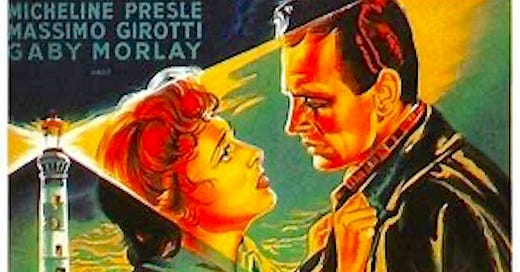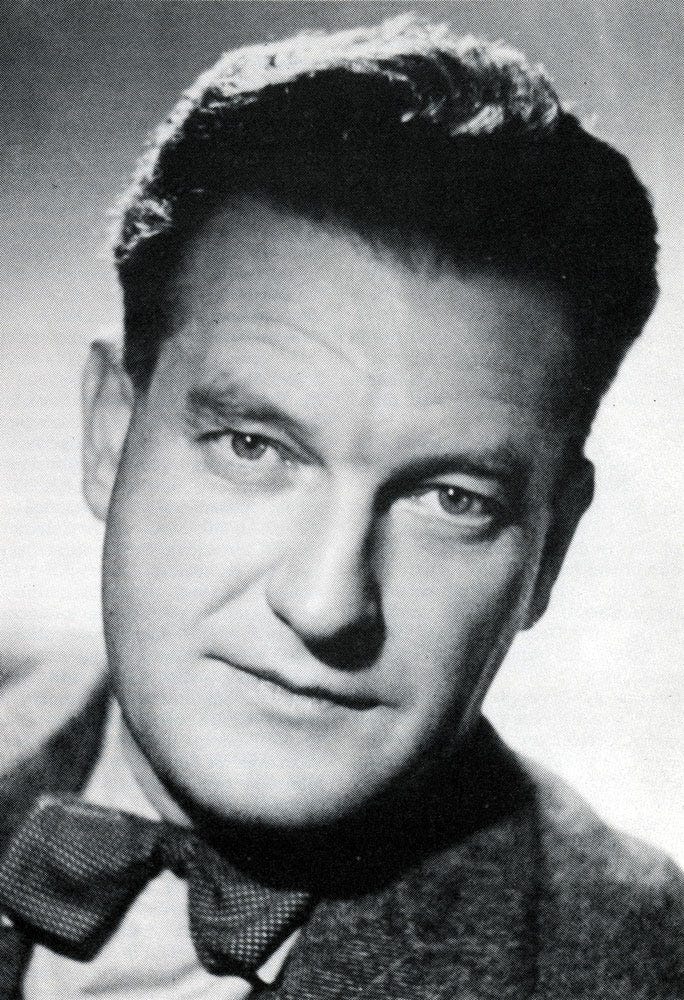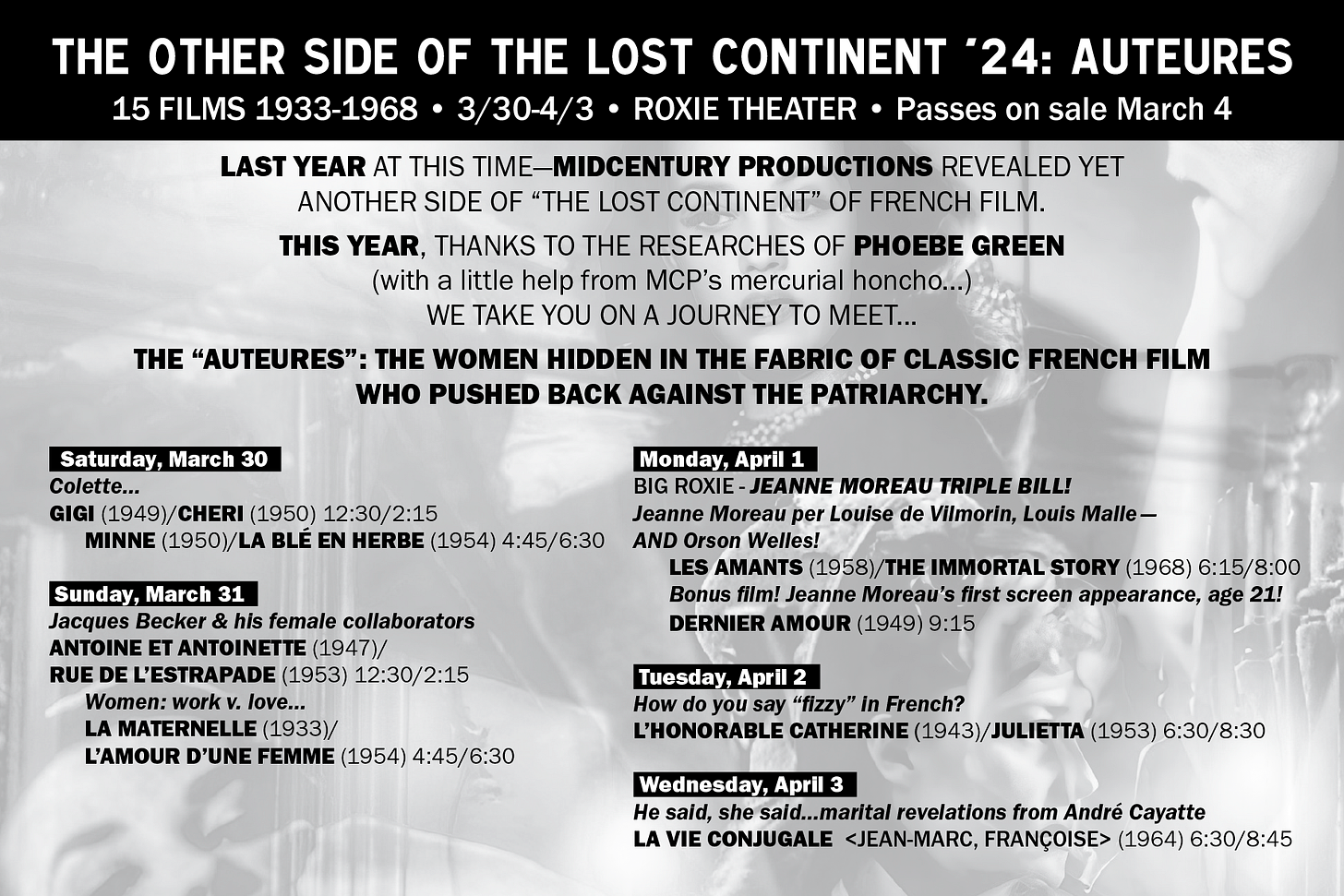All-festival pass sales continue this week and will conclude at 11:59:59pm on Sunday night (March 17). Please don’t get too lubricated on Saint Patrick’s Day and let the deadline pass! Here again is the PayPal link for purchasing the pass, which opens the door for fifteen more fascinating films from the never-again-to-be-maligned “cinema de papa” period. We hope to see you at the Roxie from March 30 to April 3!
THOSE who’ve been to our MCP shows know of my adulation for Micheline Presle (1922-2024), who passed away just three weeks ago at the age of 101. Even with the formidable Jeanne Moreau holding court at the center of this festival, and Danièle Delorme delighting us in the series’ opening salvo as the archetype for the “spunky ingenue,” Presle stands out due to qualities she possesses that somehow transcend our sense perceptions.
When she is given roles like Eva in LES JEUX SONT FAITS or Marthe in LE DIABLE AU CORPS, we are swept into her characters in ways that are more organic and encompassing than her estimable peers (Michèle Morgan, Danielle Darrieux). And so it is also with L’AMOUR D’UNE FEMME (1954), directed by one of the greatest directors of women in cinema, Jean Grémillon.
As much as I revere her work in LES JEUX SONT FAITS (one of the few films we’ve shown twice), it’s entirely possible that her performance as Marie Prieur, the embattled doctor swept up by the need to prove her mettle who is then swept into a maelstrom of romance that threatens to undo all that she has accomplished, is the most masterful of all.
L’AMOUR D’UNE FEMME is a pivotal film in a backlash against the shift in gender roles that had been occurring in French cinema since the end Occupation. In 1954, it was a “clay pigeon” for these cultural forces who (like some in our present age) sought a punitive form of retrenchment even in the face of obvious and necessary change. Here is some valuable context from the estimable “cinema de papa” specialist Colin Crisp:
“One consequence [of the backlash] at the level of popular culture was the proliferation of men as victims…and their persecutors were frequently diabolical females (e.g., Henri-Georges Clozout’s films; MANÈGES; VOICI LE TEMPS DES ASSASSINS).
A minority of films, often scripted by left-wing and/or resistance figures, held out against this trend by promoting favorable representations of capable, emancipated women. Grémillon’s L’AMOUR D’UNE FEMME was the most overtly committed of these feminist representations of capable women who refuse to return to their ‘allotted’ role as housewives.”
THE above may make the film sound like an ideological tract of tedious proportions. It is anything and everything but that, thanks primarily to Presle and Gremillon’s commitment to chronicling all the forces that descend upon Marie as she succeeds at winning over a stubborn islander population to her as their new doctor, only to find that the man she’s fallen in love with expects her to give all that up to be with him.
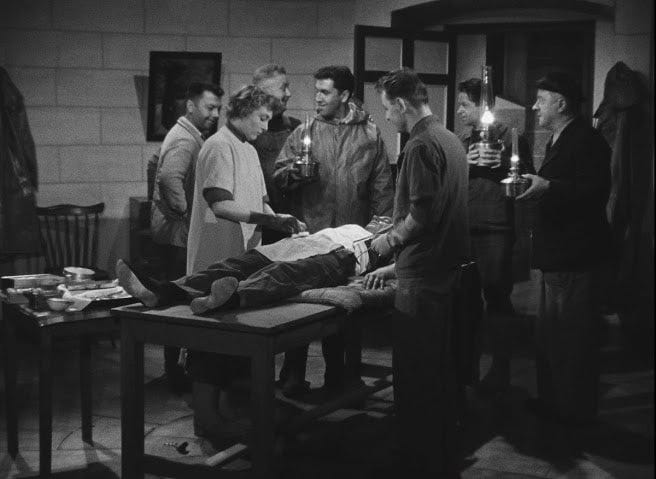
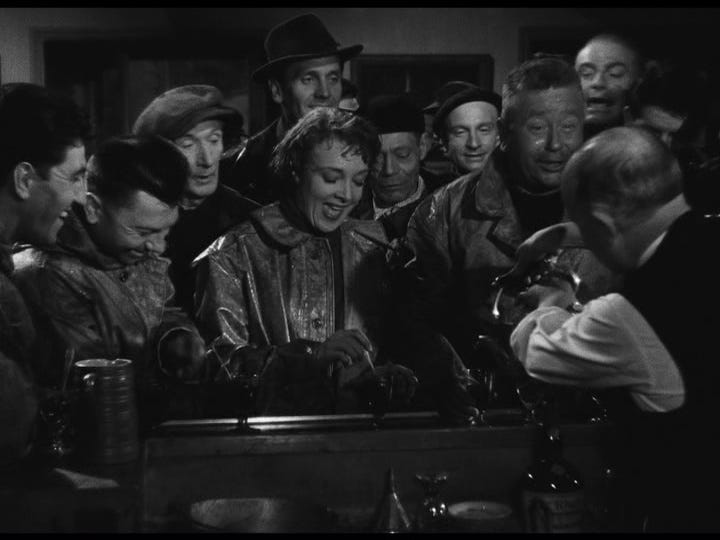

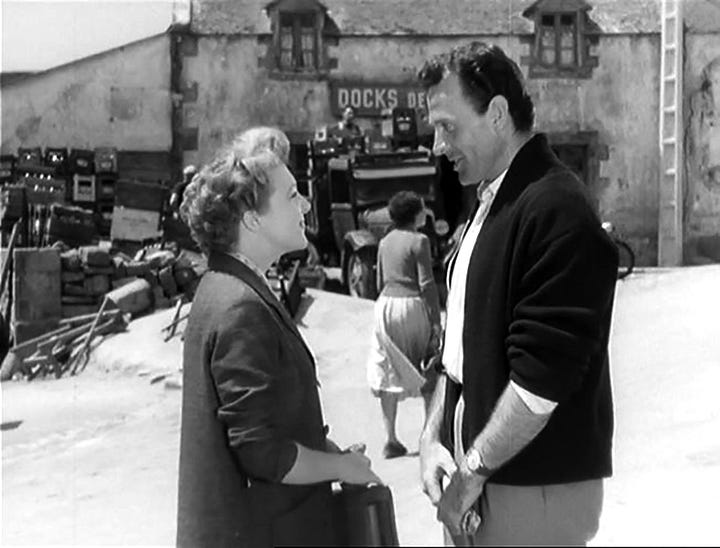
We should not assume that her would-be husband (subtly played by the superb Italian actor Massimo Girotti) is a lout—he’s not. And that fact adds the great counter-movement in the film that permits it to build into a gripping examination of the give-take in gender relations and all of the attendant issues encompassed by that term.
The fate of L’AMOUR D’UNE FEMME upon its release was a shameful example of scapegoating at the hands of a retrenched film industry. The film’s release was held up for months, it was bad-mouthed in the press; and it cost Jean Grémillon his career (this would be the last feature film he ever made).
How oddly appropriate, then, that seventy years after the film’s mistreatment and banishment—and just weeks after its brilliant star Micheline Presle has passed away—we find ourselves staring down our own forces of retrenchment. And how important that a film that was ahead of its time seventy years ago should be making its first appearance in an American theater since its lone screening in the USA (in 2001, at the Bay Area’s own Pacific Film Archive, natch) at a time when its matter-of-fact but crucially meaningful message is more needed than ever.
I’m not sure any film can really change one’s life—though, of course, this film did do just that to Jean Grémillon. But given L’AMOUR D’UNE FEMME’s astonishing ability to embody the issues still sweeping through the whirling world of women, this is the one that may come the closest. See it!
Here again is the PayPal link for purchasing the pass, your portal to a world of film that is unavailable anywhere else in a movie theater. We hope to see you at the Roxie!

